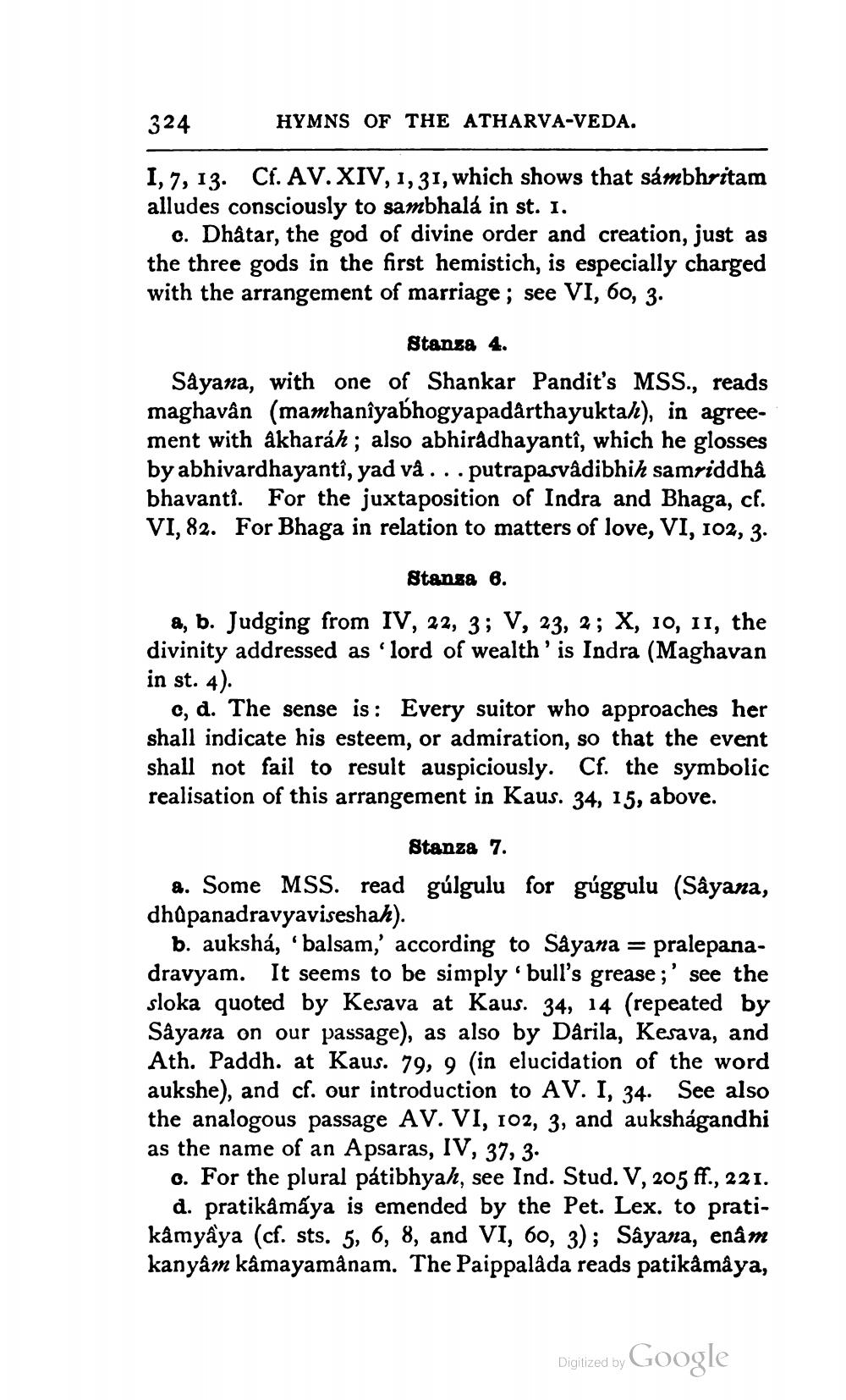________________
324
HYMNS OF THE ATHARVA-VEDA.
1, 7, 13. Cf. AV.XIV, 1, 31, which shows that sámbhritam alludes consciously to sambhala in st. 1.
c. Dhåtar, the god of divine order and creation, just as the three gods in the first hemistich, is especially charged with the arrangement of marriage ; see VI, 60, 3.
Stansa 4. Sayana, with one of Shankar Pandit's MSS., reads maghavân (mamhanîyabhogyapadårthayuktah), in agreement with akharáh; also abhiradhayantî, which he glosses by abhivardhayantî, yad và ... putrapasvadibhih samriddha bhavanti. For the juxtaposition of Indra and Bhaga, cf. VI, 82. For Bhaga in relation to matters of love, VI, 102, 3.
Stansa 6.
A, b. Judging from IV, 22, 3; V, 23, 2; X, 10, 11, the divinity addressed as 'lord of wealth 'is Indra (Maghavan in st. 4).
C, d. The sense is: Every suitor who approaches her shall indicate his esteem, or admiration, so that the event shall not fail to result auspiciously. Cf. the symbolic realisation of this arrangement in Kaus. 34, 15, above.
Stanza 7. a. Some MSS. read gúlgulu for gúggulu (Sâyana, dhồpanadravyaviseshah).
b. aukshá, 'balsam,' according to Sayana = pralepana. dravyam. It seems to be simply.bull's grease ;' see the sloka quoted by Kesava at Kaus. 34, 14 (repeated by Sayana on our passage), as also by Darila, Kesava, and Ath. Paddh. at Kaus. 79, 9 in elucidation of the word aukshe), and cf. our introduction to AV. I, 34. See also the analogous passage AV. VI, 102, 3, and aukshágandhi as the name of an Apsaras, IV, 37, 3.
6. For the plural pátibhyah, see Ind. Stud. V, 205 ff., 221.
d. pratikâmáya is emended by the Pet. Lex. to pratikâmyâya (cf. sts. 5, 6, 8, and VI, 60, 3); Sayana, enam kanyam kamayamânam. The Paippalada reads patikamaya,
Digized by Google
Digitized by




